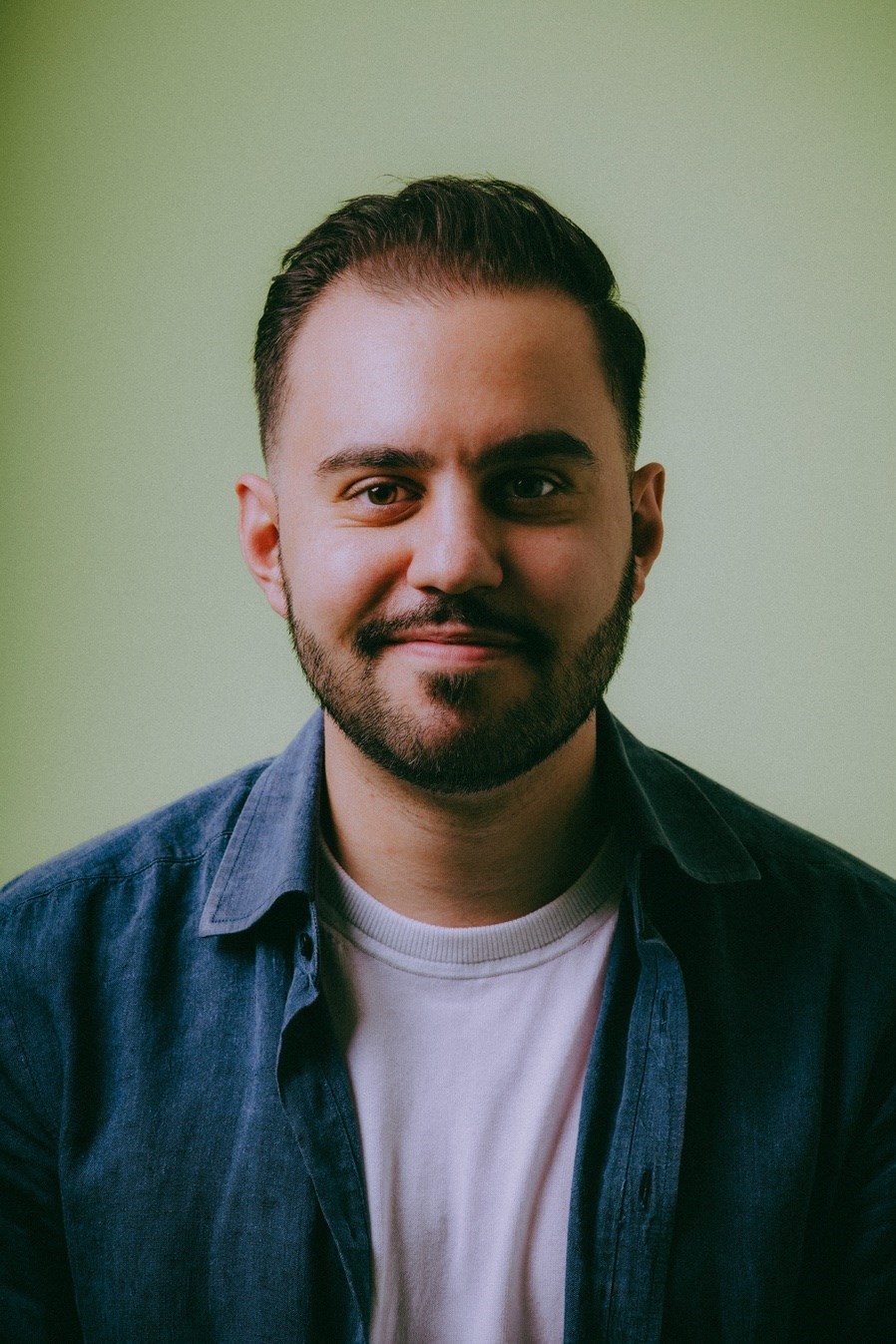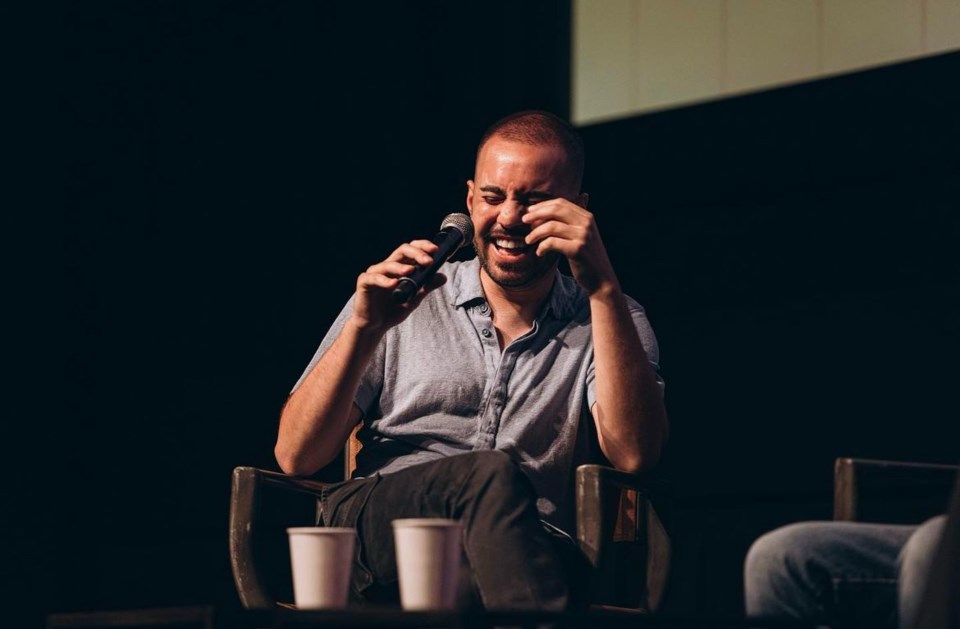Eric Bizzarri, 29
Job: Co-founder and CEO of Future of Film Showcase, producer and director
Education: BFA Hons. in film production from York University ’17
An award-winning Canadian director and producer, Eric Bizzarri makes films that explore toxic masculinity, friendship and intimacy between young adolescents. His productions have screened at TIFF Next Wave, Whistler Film Festival, Reykjavík International Film Festival and have been distributed by CBC and Amazon Prime.
As the co-founder and CEO of the Future of Film Showcase (FOFS), Eric has spent over a decade championing emerging Canadian filmmakers — especially those from underrepresented and marginalized communities. Through FOFS, he’s built a national platform that supports new talent with year-round programming, professional development and industry access.
Whether behind the camera or behind the scenes, Bizzarri is shaping the future of Canadian cinema one story, and one storyteller, at a time.
How did you know that you wanted to get into film?
I acted for around 10 years, from the time I was seven or eight until I was about 18. I’ve always loved telling stories. It was really important for me, even in high school. I did a show at the Paprika Theatre Festival as part of the Creators Unit program. We built a show from scratch. We all wrote characters, we shared very personal experiences too. I started to wonder if I was behind the camera, rather than in front of it, whether I would have more agency in the kinds of stories I wanted to tell. That’s what put me down this path.
Coming to York, I started writing what would eventually become my thesis film, Cold Hands. I also co-founded the Future of Film Showcase, which, over 12 years, has become Canada’s premier destination for emerging Canadian filmmakers across the country.
You co-founded the festival during your first year in York’s School of the Arts, Media, Performance & Design film production program. What motivated you?
A group of us felt that there was a lack of space for younger, emerging filmmakers to thrive. There were all sorts of festivals, but there wasn’t one for youth — or even student — filmmakers where they could apply and have a good shot at screening. So we decided to create a festival for film school students in the GTA.
When we started, I don’t think anybody’s long-term goal was to become a festival programmer. Our friend group, the six of us at York who were pushing it, we loved making movies — and we loved watching them as much as we loved making them.

Lots of people have big ideas, but find them too intimidating to tackle. You were in your first year of studies. What gave you the confidence to do it?
FOFS started very small. It wasn’t nearly as big as it is now — spotlighting world premieres, Toronto premieres. We were a one-day festival, screening shorts for a couple of hours, then we’d go to a bar and have an after-party.
The first year was at the AMC in Vaughan, which is now closed. I worked at the AMC, so they gave us the theatre for free. The second year was at the Fox Theatre. We split the rental fee. The third year, we pitched to Cineplex. We built this whole PowerPoint presentation for them about supporting emerging filmmakers. They gave us a theatre for free that year! Canada Square at Yonge and Eglinton — which is also now closed. I think we had our lowest attendance, like under 100 people, the majority probably friends and family. So when we went back to them, we were nervous. We thought, there’s no way they’re going to give us a theatre for free again. But they blamed the location for the turnout and offered us the Scotiabank Theatre for our fourth year. We sold out.
We continued selling out larger theatres until COVID. Years seven and eight, those were virtual, and we ended up partnering with CBC Gem. They acquired all the films, so everybody who screened those years got a pretty sweet licensing fee.
You celebrated your 10th anniversary back at Scotiabank, and now you’re running a four-day festival out of the Paradise Theatre on Bloor. How else has the festival changed since those early days?
As we grew, we expanded the criteria. So rather than just being for student filmmakers, it became emerging Canadian filmmakers, then 30 and younger, then 40 and younger, and now there isn’t an age limit. Anybody at any age can apply — as long as they identify with the emerging criteria.
What lessons have you learned from running a film festival?
What better way to learn about the business of filmmaking than to start your own business and festival? It taught us to be more responsible. It taught us about how organizations are run. We learned about governance, people skills, communication skills.
Moving on to your own films. What are the themes in your work?
I delve into the nuances of toxic masculinity, relationships between young adolescents that often define themselves and the rest of their lives. My characters are often faced with a paralyzing decision that forces them to lose their innocence.
What’s next?
I just applied for funding to direct my first feature film. It’s an extension of my thesis film, the short I directed in my fourth year at York University. The feature is an expansion of that, and sort of the reason why I went into filmmaking to begin with.
The Career Files is a series where we talk to Top 30 Alumni Under 30 about how they turned their ambitions into achievements. Real paths. Real insights. Discover where a York education can lead you.
For more on the Future of Film Showcase, visit www.fofs.ca. To learn about York University’s cinema & media arts production program at the School of the Arts, Media, Performance & Design, visit www.futurestudents.yorku.ca/program/cinema-media-production.

